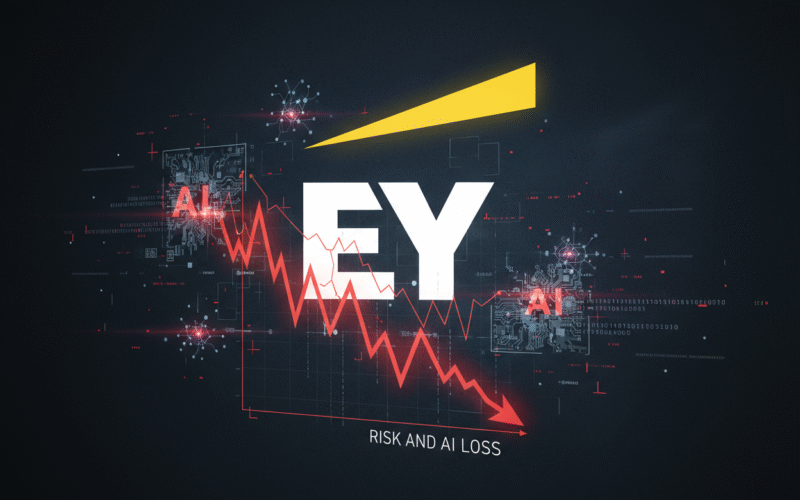Most companies face significant AI Risks Financial Loss, according to a recent EY survey. The findings reveal that nearly all organizations adopting AI technology experience setbacks linked to financial losses from risks. These losses often come from compliance failures, biased outputs, and sustainability challenges, highlighting the urgent need for stronger AI governance worldwide.
The survey shows that 99% of companies have suffered financial loss linked to AI risks, with 64% reporting losses exceeding $1 million. This demonstrates the high cost of rapidly adopting AI without adequate controls. Many of these losses are tied to failing regulatory compliance and the negative impact AI can have on sustainability goals.
Leadership gaps contribute to these losses as well. Only 12% of C-suite executives have a clear understanding of the necessary measures to mitigate AI risks. This widespread knowledge gap increases vulnerability as workplace AI use expands, making it harder for companies to manage these risks safely and effectively.
Another challenge comes from “citizen developers”, employees independently using or creating AI tools without formal oversight. Around two-thirds of companies allow citizen developer activity, yet only 60% have formal policies to guide it. This lack of governance leads to limited visibility into AI usage, further escalating financial risks.
Despite these challenges, companies implementing responsible AI practices see better outcomes. Firms with real-time AI monitoring are 34% more likely to increase revenue and 65% more likely to reduce costs. These benefits show that embedding ethics and safety into AI deployment not only reduces loss, it drives growth and builds trust.
EY experts stress that managing AI risks is essential for unlocking value. Responsible AI practices foster innovation, market advantage, and consumer confidence. Clear ethical frameworks help organizations balance rapid AI adoption with minimizing financial loss and reputational damage.
To move from risk to reward, companies must close governance gaps and enhance AI risk controls. Training executives and staff on responsible AI use is key, as is setting policies for all AI users, including citizen developers. These steps will help reduce financial loss and make AI a long-term business asset.
Overall, the EY survey makes it clear that AI Risks Financial Loss is a growing issue that all companies must address. However, responsible AI governance turns these risks into opportunities, enabling businesses to thrive in an AI-powered future. Companies leading with safety and ethics will gain competitive advantages in this evolving landscape.









